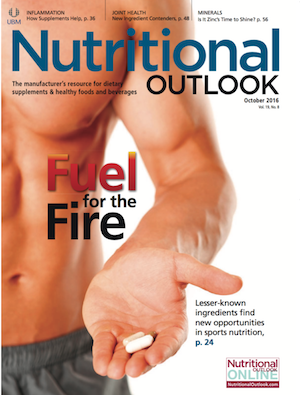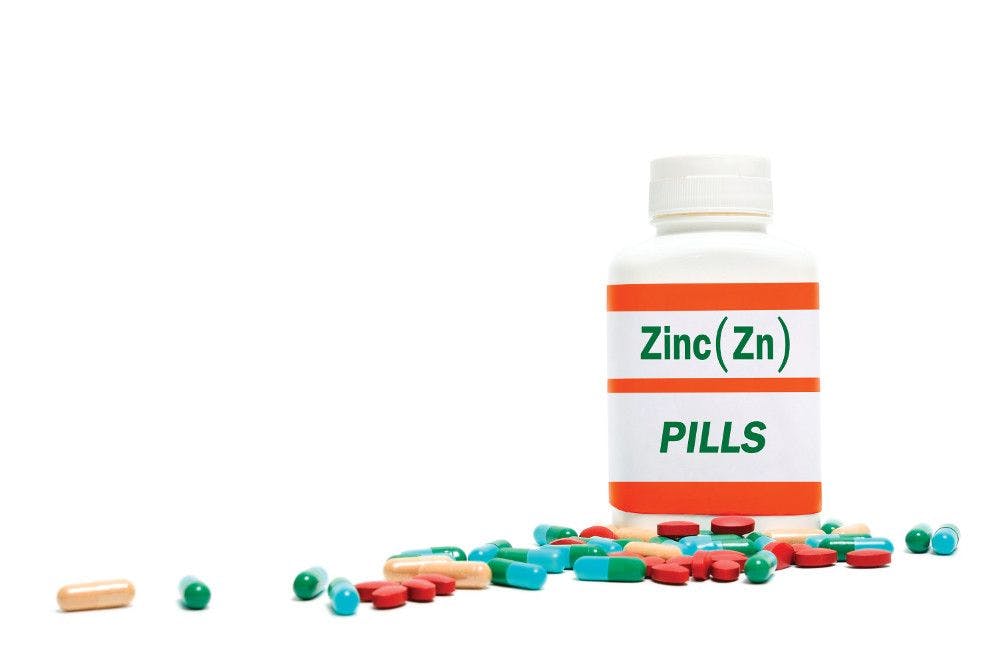FDA’s NDI Guidance and GRAS Rule: Stop Fighting, and Move Forward
“To battle pointlessly only gives the industry’s critics further ammunition that we oppose any effort to rein in the bad actors that lurk around the fringes of the industry,” says CRN’s Steve Mister.
Photo © iStockphoto.com/zoranm

By Steve Mister, President & CEO, Council for Responsible Nutrition (CRN)
Regardless of where I go-a dinner party, a Capitol Hill reception, a parent meeting at my son’s school-when people learn that I work in the dietary supplement field, they always ask, “Are they really safe?” It’s a constant reminder to me of how fragile the relationship of trust between supplements and their consumers really is; one safety scare could ripple through the entire industry.
In August, FDA took two steps toward changing that dynamic with the release of both the revised new dietary ingredient (NDI) draft guidance and the final GRAS regulation, only a day apart. And although neither is perfect, I think it’s time the industry embraced both as forward momentum toward changing the concerns toward dietary supplements and the functional foods that contain these same dietary ingredients.
In both cases (dietary supplements and new food ingredients), the law has long recognized that FDA should not have the same, painstaking oversight of the introduction of new supplement products that it has for pharmaceuticals. And for good reason: drug-like pre-market approval over either the dietary supplement or food ingredient category would stifle innovation and escalate the prices of these products. It would mire manufacturers in years and millions of dollars of research that would be rigorous enough to satisfy an agency whose very raison d’être is to protect public health by erring on the side of saying “no.”
However, that doesn’t mean industry should cry foul and declare war on FDA every time the agency issues a document implementing its statutory authority. This is especially true for dietary supplements because the industry had a large hand in negotiating the Dietary Supplement Health & Education Act (DSHEA). Part of that bargain was the NDI provision of the law. In return for getting out from under the FDA’s attempts to regulate dietary ingredients like food additives, we agreed to provide pre-market notice to the agency for new ingredients starting in 1994. We promised Congress, FDA, and the American consumer that the industry would provide evidence that its new ingredients, and the products that included them, would be reasonably expected to be safe. The GRAS provision in the Food, Drug & Cosmetic Act has a somewhat different history, but even there, the food industry committed years ago to assemble evidence and self-affirm through its own expert panels that new food ingredients would be demonstrated to be safe, instead of having to maneuver through the food additive requirements for every new ingredient.
Both the newly revised NDI guidance and the GRAS regulation are illustrations of FDA simply implementing a statute that expressly gives the agency the very authority it is now exercising. One can make the case that FDA is taking an overly strict interpretation of some aspects of the law-and we will. For example, CRN will surely raise objections in its comments on the NDI guidance with regard to FDA’s burdensome requirements for younger companies to demonstrate that an ingredient was marketed prior to 1994. We will also likely raise objections to the guidance’s expansive interpretation that even minor changes in manufacturing would make an old ingredient a “new” one that would require notification.
But at the end of the day, that law we helped enact 22 years ago explicitly requires manufacturers to demonstrate to FDA that new ingredients are reasonably expected to be safe. The supplement marketplace has enjoyed dramatic growth, and our customers expect FDA to have a role in assuring that new products are safe to use. Consumers of functional foods assume that marketers of new ingredients stand behind the safety of those ingredients, too, by allowing experts in the field to rigorously evaluate the evidence of their safety.
Today’s marketplace demands that products consumers put into their bodies are safe. We can fight FDA and risk losing the trust of our consumers, or we can embrace the underlying principles to move the industry forward. To battle pointlessly only gives the industry’s critics further ammunition that we oppose any effort to rein in the bad actors that lurk around the fringes of the industry. So we can fight, or we can move forward with two new tools that help assure that every dietary supplement and functional food is safe.
Steve Mister is the president/CEO of the Council for Responsible Nutrition (CRN; Washington, DC), the leading trade association for the dietary supplement and functional food industry.
Also read:
2 Big Wins for Supplement Industry in FDA’s New NDI Draft Guidance
FDA Issues GRAS Final Rule, Officially Ushers In Voluntary Notification
When in Doubt, Submit a NDI Notification, Urge NPA Webcast Speakers

HHS announces restructuring plans to consolidate divisions and downsize workforce
Published: March 27th 2025 | Updated: March 27th 2025According to the announcement, the restructuring will save taxpayers $1.8 billion per year by reducing the workforce by 10,000 full-time employees and consolidating the department’s 28 divisions into 15 new divisions.
DOJ asks Utah court to dismiss FTC lawsuit against Xlear Inc.
March 11th 2025On March 10, the DOJ and the defendant filed a stipulation to dismiss with prejudice the lawsuit in which each party agrees “to be responsible for its own costs and fees and agrees that no party shall be responsible to any other party for any fines, costs, fees, or penalties arising from this case.”




















